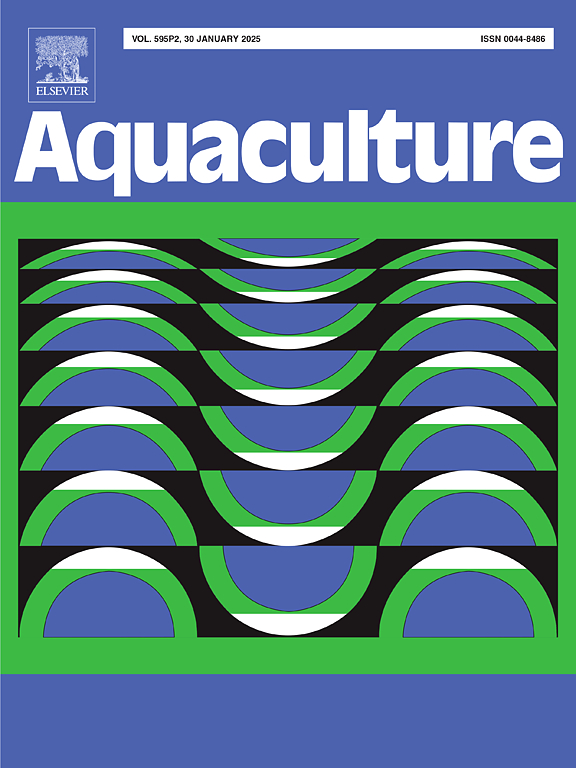Examination of the effects of avermectin-induced anxiety-like behavior on growth in the Chinese mitten crab, Eriocheir sinensis
IF 3.9
1区 农林科学
Q1 FISHERIES
引用次数: 0
Abstract
The widespread use of avermectin in both agriculture and aquaculture has raised concerns about its environmental impact on non-target aquatic species. In particular, the use of avermectin in rice-crab co-culture systems poses a significant risk with regards to the production of the Chinese mitten crab, Eriocheir sinensis, an ecologically and economically important species in China. Through chronic exposure experiments, this research assessed how sublethal concentrations of avermectin influence crab growth, food consumption, and neurobehavioral responses. Our results showed significant reductions in both food intake and overall growth in E. sinensis exposed to 2 and 20 μg/L of avermectin. Neurochemical analysis revealed elevated levels of serotonin (5-HT) and gamma-aminobutyric acid (GABA) in the brain of exposed crabs, while dopamine levels remained unchanged. Up-regulation of 5-HT and GABA receptor genes was observed under avermectin stress. In addition, oxidative stress was observed, with elevated levels of oxidative products in the brain. Behavioral tests linked neurochemical alterations in serotonin and GABA levels to marked anxiety-like behaviors, characterized by decreased locomotion and increased light avoidance. Importantly, administering 5-HT and GABA receptor antagonists alleviated anxiety-like behaviors. This treatment also reversed growth inhibition, underscoring the role of these neurotransmitters in mediating the toxic effects of avermectin. Our findings highlight the neurotoxic impact of avermectin on aquatic invertebrates and suggest potential intervention strategies to mitigate its adverse effects.

求助全文
约1分钟内获得全文
求助全文
来源期刊

Aquaculture
农林科学-海洋与淡水生物学
CiteScore
8.60
自引率
17.80%
发文量
1246
审稿时长
56 days
期刊介绍:
Aquaculture is an international journal for the exploration, improvement and management of all freshwater and marine food resources. It publishes novel and innovative research of world-wide interest on farming of aquatic organisms, which includes finfish, mollusks, crustaceans and aquatic plants for human consumption. Research on ornamentals is not a focus of the Journal. Aquaculture only publishes papers with a clear relevance to improving aquaculture practices or a potential application.
 求助内容:
求助内容: 应助结果提醒方式:
应助结果提醒方式:


